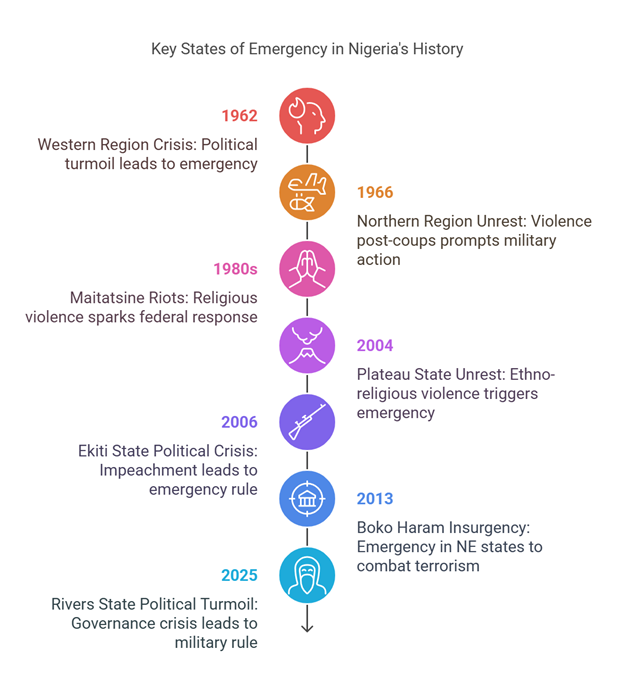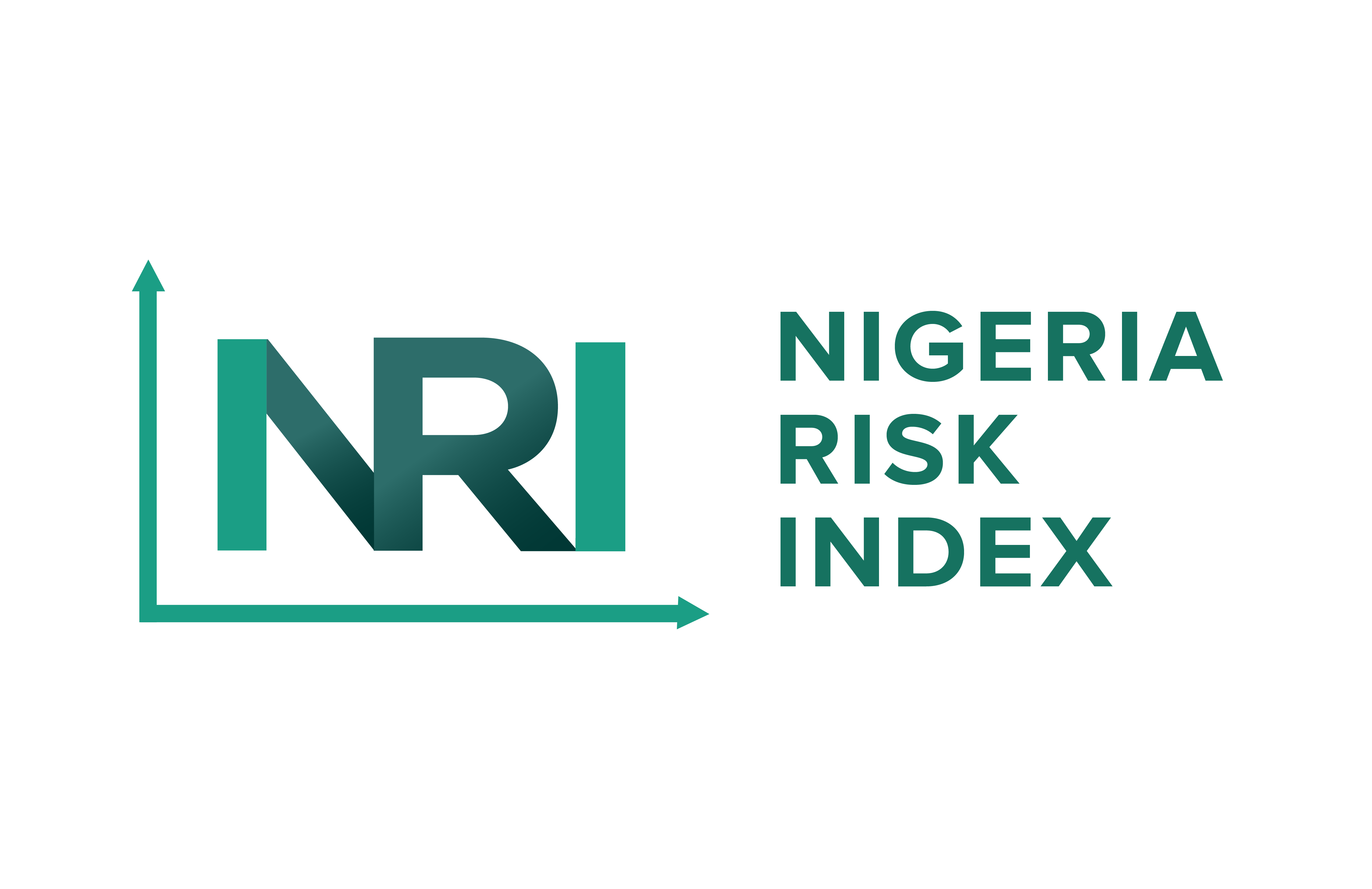Insights
Since gaining independence in 1960, Nigeria has encountered various challenges that have led to the declaration of states of emergency. These declarations, rooted in constitutional provisions, have addressed political crises, security threats, and civil unrest. This article explores these pivotal moments, their legal foundations, and the implications of such measures, culminating in the recent declaration in Rivers State.
Basis for State of Emergency
Section 305 of the 1999 Nigerian Constitution empowers the President to declare a state of emergency under specific circumstances, including:
1. War or Imminent Danger
When the Federation is at war or faces the threat of invasion.
2. Breakdown of Public Order
Significant breakdown of public order and public safety requiring extraordinary measures to restore peace.
3. Natural Calamity
Occurrences like natural disasters affecting the community.
4. Public Danger
Any other public danger that poses a threat to the existence of the Federation.
Additionally, a state Governor, with a two-thirds majority resolution from the State House of Assembly, can request the President to declare a state of emergency if situations within the state necessitate such action.

Constitutional and Legal Concerns
The Nigerian Bar Association (NBA) has criticized the suspension of elected officials as unconstitutional, emphasizing that a state of emergency does not automatically dissolve or suspend elected state governments.
Patterns, Differences, and Similarities
A recurring pattern in these declarations is the federal government's intervention in situations where regional conflicts threaten national stability. However, the approach to implementing emergency rule has evolved. Earlier interventions often involved suspending regional or state governments and appointing administrators, as seen in 1962, 2004, and 2006. In contrast, the 2013 declaration during the Boko Haram insurgency allowed existing state structures to function, focusing on military intervention.
The 2025 Rivers State declaration shares similarities with earlier interventions concerning political crises but also reflects a nuanced approach, considering the lessons from past experiences. This evolution underscores Nigeria's ongoing efforts to balance federal authority with regional autonomy while addressing complex political and security challenges.
Understanding this history is crucial for contextualizing current events and fostering informed discussions on governance and constitutionalism in Nigeria. While the President has constitutional authority to declare a state of emergency under specific circumstances, the suspension of elected officials in Rivers State raises significant legal and ethical questions. It underscores the need for a careful balance between maintaining national security and upholding democratic principles.

The Risk Control Team
